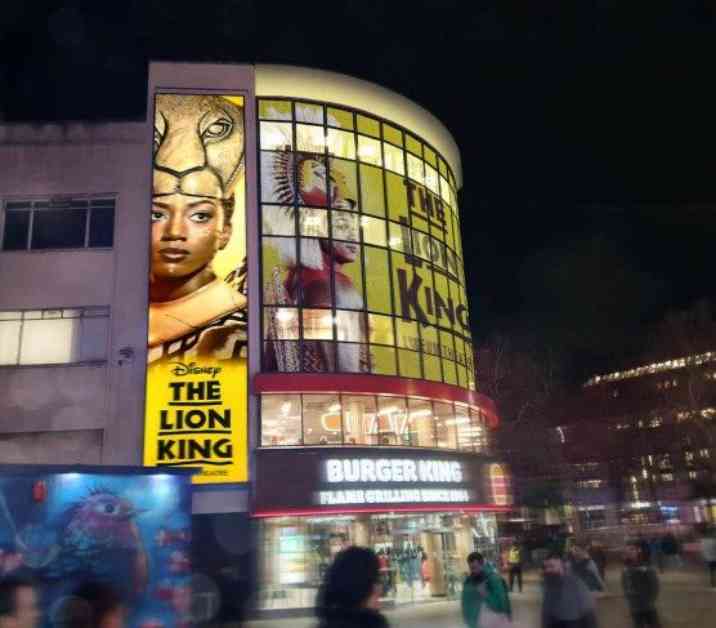A proposed cutting-edge advertisement board in Leicester Square, considered to be the first of its kind in Europe, is facing rejection due to concerns that it would negatively impact the area’s character. The plan involves installing a nine-meter high and 18-meter wide glazed LED screen at 17 Leicester Square, above Burger King, with the aim of transforming Leicester Square into a 24-hour world-class destination.
Westminster council, which has yet to make a decision on the application, has deemed the proposal as inappropriate and excessive. The council argues that the installation would dominate Leicester Square, detracting from the architectural beauty and green spaces of the area. Additionally, there are worries that the screen would attract more people to an already congested area, potentially making them vulnerable to street crime.
The council also raised concerns about the impact of constant lighting on future residents of a nearby construction site. Despite these reservations, the project has garnered support from 12 local businesses and residents. The Heart of London Business Alliance, representing over 500 businesses in the vicinity, believes that the LED screen would enhance the visual appeal of Leicester Square and provide a platform for showcasing local culture, supporting community initiatives, and boosting economic growth.
Soho Estates, the applicant behind the proposal, has offered to allow local businesses and charities to advertise on the board free of charge. The building in question is a five-storey structure with a distinctive curved façade, situated at the corner of Leicester Square, Cranbourn Street, and Bear Street. According to Matt Architecture, representing Soho Estates, the transparent LED glazing used in the project would not obstruct daylight or views from within the building, as it does not feature visible wiring or circuits.
While the use of transparent LED glazing in the UK has mostly been limited to temporary installations, this application presents an opportunity for a permanent fixture. The potential benefits of the LED screen, such as promoting local businesses and cultural initiatives, have been highlighted by supporters of the project. However, the council remains firm in its stance against the proposal, citing concerns about its impact on the area’s ambiance and safety.
As the debate continues, the fate of the LED advertisement board in Leicester Square hangs in the balance, with stakeholders on both sides presenting compelling arguments for and against its installation. Whether the project will ultimately proceed or be rejected remains to be seen, as Westminster council prepares to make a final decision on the matter.












